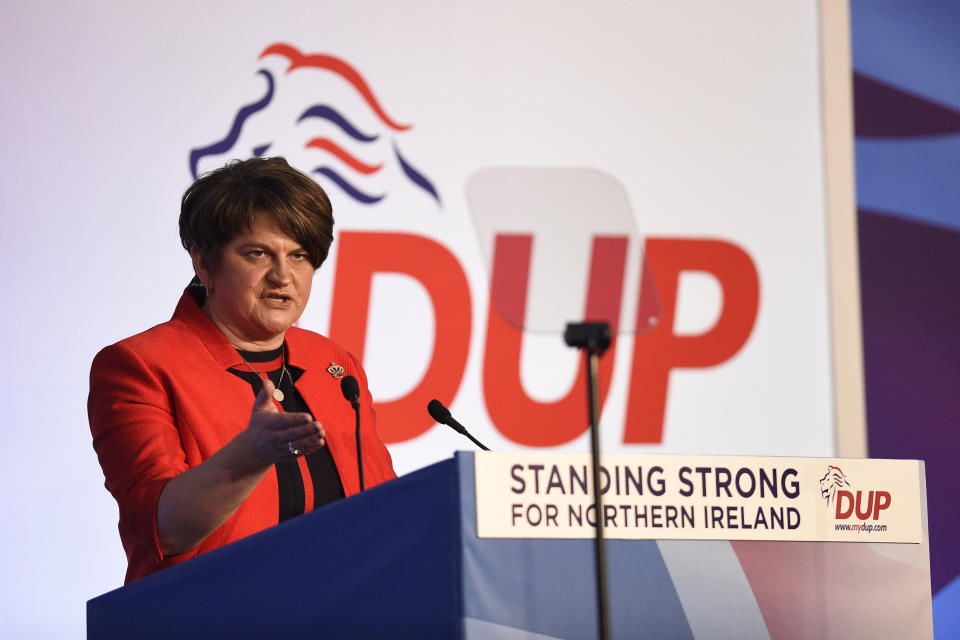The DUP’s three concerns with Boris Johnson’s Brexit deal
Boris Johnson has secured a Brexit deal with the EU, but he still faces enormous difficulty getting it through Parliament on Saturday.
On Thursday, DUP leader Arlene Foster and deputy leader Nigel Dodds released a statement confirming they could not support the proposals.
The PM relies on the votes of the DUP to get his deal approved.
Here are the DUP’s three objections:
Customs
The EU and the Prime Minister have moved towards each other on a customs arrangement for Northern Ireland.

The EU has agreed for Northern Ireland – in what would be a complex dual-tariff arrangement – to be allowed to officially remain in a customs territory with the UK, meaning the region can benefit from trade deals inked by the Government and any lower tariffs agreed by ministers.
The arrangement would keep the Irish internal border open but create checks in the Irish Sea on goods travelling between Northern Ireland and Great Britain, a situation that crosses the DUP’s “blood red” line.
Read more from Yahoo News UK:
Labour to try and force a second Brexit referendum on Boris Johnson's deal
What happens on Saturday now a Brexit deal has been reached?
Mrs Foster had previously said: “There cannot be a border down the Irish Sea, a differential between Northern Ireland and the rest of the UK. The red line is blood red.”

Consent
Mr Johnson often labelled his predecessor Theresa May’ backstop plans “undemocratic” and sought a mechanism to give Northern Ireland an opt-in or way out of his Withdrawal Agreement.
The EU rejected plans to give the DUP a veto every four years on the border deal but is said to have conceded to a unilateral exit arrangement, using a vote mechanism concocted by Assembly members.
A rejection of the plans by the Assembly, which is currently suspended, would bring in a two-year cooling-off period in which a way of saving the Good Friday agreement would need to be found.
The DUP fears that moves to bypass the petition of concern – a unique political tool that allows unionist or nationalist groups to reject reforms in Northern Ireland – could upset the balance of the once-warring communities.
VAT
Brussels and the UK were reportedly in a wrangle over VAT and whether EU rates should apply in Northern Ireland.
There are concerns that a complicated VAT system - in which Northern Irish businesses would need to claim rebates from the UK government - could present significant cash flow problems, particularly to SMEs.
How concerned Mrs Foster is about staying with the UK’s VAT rate is unclear, and whether she is using the disagreement to show there are issues being voiced by more than just her own party remains to be seen.

 Yahoo News
Yahoo News 

